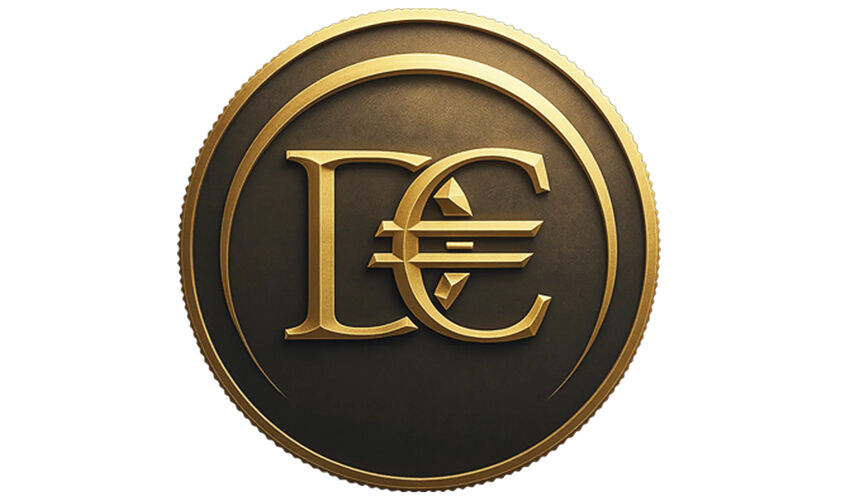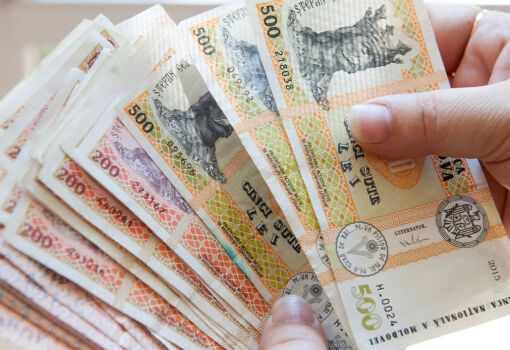
Last week, Double Case, a Moldovan consulting company, announced the launch of the first corporate crypto coin in Moldova – Double Case Token (DCT).
Among other things, the company provides training on international financial markets, and the tokens can be used to pay for this service. But this is only a small part of what the issuers are counting on.
“The company is launching Double Case Token (DCT) on the Solana blockchain to show how tokenization of corporate capital can be a quick alternative to exchange listing. The token will serve as a utility in the Double Case ecosystem and promote the idea of raising capital through tokenization,” the company said in a press release.
The stages of implementation of the new crypto coin: creation and listing of the token on DEX (decentralized exchanges); integration of the token into the Double Case ecosystem (discounts, programs, privileges); listing of the token on CoinMarketCap, CoinGecko and on all top-CEX (Binance, Bybit, Huobi, Kucoin, Coinbase, Upbit, OKX, Bitget, Gate, Mexc, BingX).
Taking into account the fact that the Moldovan legislation in this area is quite confusing, SRL Double Case officially declares that it carries out activities related exclusively to education and training in the financial and investment field and does not provide services for marketing, sale or distribution of derivative financial instruments covered by Law No. 177 of July 3, 2025 (we will come back to it).
Double Case CEO Alexandru Ignat said at a press conference dedicated to the launch of the first Moldovan crypto coin that there are no provisions in the Moldovan legislation that prohibit the creation of tokens; at the same time, the company’s example will serve as an impetus for the creation of a regulatory framework in this area.
In July 2025, a Moldovan company, financial services provider Bpay, launched the CryptoSphere app for Android and iOS, which can be used to buy and sell cryptocurrency – Bitcoin, Ethereum, Litecoin, USDT – in just a few steps; monitor the real-time exchange rate of coins; and transfer funds between external wallets.
Participants of the scandalous financial pyramid scheme TUX conducted transactions in USDT stablecoins.
According to the authoritative specialized resource Chainalysis, this year Moldova ranked second in the category of acceptance of cryptocurrencies by the population. Ukraine is in first place in this category, Georgia is in third place, and Jordan is in fourth place. The authors of the index explain this by “a combination of economic instability, distrust in traditional financial institutions and high levels of technical literacy in the region”.
“These factors make cryptocurrency an attractive alternative for both capital preservation and cross-border transactions, especially in countries facing inflation, war or banking restrictions,” Chainalysis said in the study.
Another study found that Moldovan citizens earned about $150 million in 2023 from cryptocurrency-related transactions. And, despite all the bans, no less than 2% of Moldova’s residents own cryptocurrency. In terms of cryptocurrency adoption, Moldova ranks 12th out of 40 countries included in the EBRD ranking.
And all this against the background of prohibitive legislation.
Three years ago, the National Bank of Moldova sent a written instruction dated 28/10/2022 to payment service providers and e-money issuers registered in the Republic of Moldova, which ordered “…to stop facilitating/intermediating payments from/to payment accounts and e-currency accounts to virtual currency buying/selling platforms and to stop cooperating/servicing companies whose field of activity is the exchange of virtual currencies for fiat currency…”.
In 2025 was adopted the Law No. 177 of July 3, 2025 “On measures to strengthen the protection of investments in derivative financial instruments”, according to which it is prohibited on the territory of the Republic of Moldova: marketing, sale and distribution of derivative financial instruments such as binary options and aggressive distribution among non-professional clients of derivative financial instruments traded through electronic trading platforms, providing directly or indirectly the leverage effect depending on the underlying asset.
The concept of “virtual assets” is formulated in Law No. 308/217 “On the Prevention and Combating of Money Laundering and Terrorist Financing”, cryptocurrency is also mentioned in Law No. 133/216 regarding the declaration of assets and personal interests, but without a detailed definition.
Law 308/217 prohibits the provision of services related to virtual assets on the territory of Moldova, but not their possession. Violation of this rule implies not only administrative but also criminal liability.
The authorities intend to harmonize the legal framework regarding the circulation of cryptocurrencies with the EU legislation by June 2027. The regulatory framework is being developed by the government, the National Bank and the Financial Market Commission.
This week, a Moldovan delegation of representatives of the NBM, NCFM, MIA, SIS and several other bodies participated in an experience exchange seminar organized under the auspices of the OSCE in Helsinki. At the seminar, the Finnish financial supervisory authorities shared their experience in lawmaking, existing mechanisms of regulation and supervision of the cryptocurrency market according to the unified European regulation.
This is the EU MiCA (Markets in Crypto-Assets) Regulation.
This is a regulation that governs everything related to cryptocurrency on the territory of the European Union. First of all, it concerns the licensing of exchanges: not every exchange can get the right to operate in the EU. There are requirements for the disclosure of information about users: everyone must undergo authorization and confirm their identity. This, of course, does not suit everyone. There are also nuances with limits: for example, if a transaction exceeds 1 thousand euros, you must prove the origin of the money. But on the whole, the regulations provide users, especially inexperienced ones, with quite serious protection, because the risks in this market are indeed great.
At the same time, the NBM continues to warn about the risks of investing in cryptocurrencies, which are not regulated in the Republic of Moldova. Consequently, users’ funds are not protected.
One of the participants in this segment of the financial market told Logos Press that, in his opinion, the situation with cryptocurrencies in Moldova is favorable only to the Ministry of Finance and commercial banks.
“There is a struggle for the free money of Moldovans. The Ministry of Finance is implementing its system of selling state securities eVMS with a rather low yield. Kombanks have it even worse: in April this year, with inflation around 9%, some of them opened 12-month deposits at 4% per annum. And they do not need citizens to invest in more favorable financial instruments,” the interlocutor said.
This week, speaking at the opening of the leaders’ summit in Bucharest “Roadmap for the Future”, the governor of the National Bank, Anca Dragu, said that the next important goal for the NBM will be the regulation of crypto-assets.
“By June 2027, the regulator will implement a regulatory framework for relevant service providers in line with the European MiCA regulation,” Anca Dragu promised.

